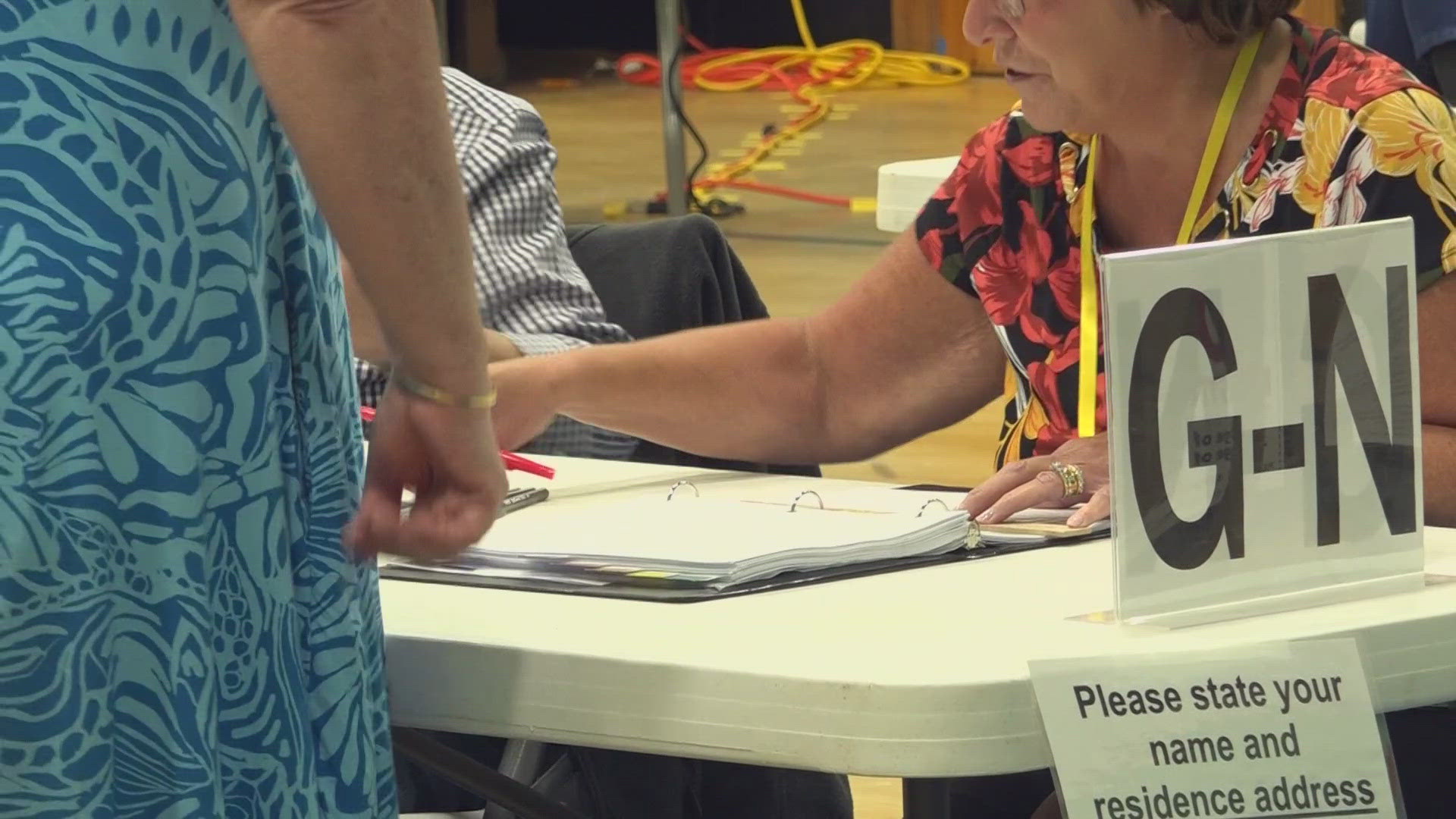LEWISTON, Maine — After months of back and forth and school leaders saying they can't make any more cuts to the latest budget, Lewiston residents still aren't convinced.
With slim margins, voters struck down the proposed school budget for the second time on Tuesday, with 1,387 "yes" votes and 1,630 "no" votes, according to preliminary results.
They first voted it down in May and Superintendent Jake Langlais was hoping for a higher turnout this time, thinking that may influence results.
"I think because we have so many elected officials, a school committee and city council, I think people feel like they've exercised trust in the process and I think their trust in the process leads them to think the budget that gets through all of those steps is a reasonable budget, so they're okay with it. That can be dangerous because when any small group wants to mobilize, it can sound like a really loud voice."
During the last budget vote, four percent of eligible voters participated. At this vote, that number went up to nine percent.
Robert McCarthy voted "no" on the school budget in May and he told NEWS CENTER Maine he was voting "no" again on Tuesday.
"It's just more than we can afford," he said outside his polling location in Lewiston, before casting his ballot.
It's not just the total cost he's upset about, but the amount the budget has consistently increased. "It's not a big hole we just keep shoveling stuff in hoping to fill and it never fills."
The 2024-2025 proposed budget adds up to $110,249,281, which is a 9.1-percent increase from the previous year. For taxpayers like McCarthy, that means property taxes in Lewiston will go up $1.90 for every $1,000 of property value. On a $150,000 home, that equates to an increase of $23.80 per month.
Since the first budget was rejected, Lewiston administrators have amended it twice, cutting a total of $1,128,875, but McCarthy says it still isn't enough.
"I think the school budget is over-burdened with excess," McCarthy said.
School officials contest that, with Superintendent Jake Langlais claiming they are actually taking a conservative approach. "I'm a taxpayer here in Lewiston too, but I also have kids in school."
A large part of the increase comes from the school's special education budget, which Langlais says is unavoidable. "Regardless of the budget approval, those students have to have their education and that's protected by law." Often, the schools do not have the resources to provide for children with certain needs, so they end up having to pay to send them elsewhere, at a costly expense.
He says this year fees for special education are higher than normal because they are trying to build infrastructure to bring more of those costs in house. Eventually, Langlais says this will allow them to offer the same services they would typically send someone to a different school for, which would ultimately off-set costs in the long run. "If the budget were to fail based on the special education ask, it would actually cost more money."
As for the other increases, Langlais says the school district faces natural cost increases, just like any other business, such as insurance rates going up annually, contract negotiations, and inflations.
"So when you look at the cost of doing business as a school, as an entity, you have growing costs that exist. They're built in. If we're going to provide the same things we provided to schools last year, we need to increase the spending a bit. People aiming to reduce it at this point, I think it's going to take away from what we provide kids."
With a rejected budget, Superintendent Langlais says they will have to hold another vote later in the summer. In the meantime, in accordance to state law, the last school committee approved budget is what moves forward, which would be the one residents voted no on.
"Then, you continue to have the votes until you have a budget approved. so you really can't move forward with what's in it in full, because it might not be what you end up with, so we'd have to take a really conservative approach."
Ultimately, he says it's going to lead to further reductions and administrators will now have to ask some very tough questions. "What can we scale back on because there's a budget supported by law, but it's not what the voters have passed."
He says it's likely additional cuts would affect services outside of the regular school day, such as after school programs and sports, which he believes would have significant long- and short-term impacts.
"Families would have to figure out where those kids would be. We'll have a number of kids, that would rather be engaged in positive school things, that would be out in our community looking for things to do."
The potential risks aren't convincing all voters. "What they're saying is to scare the taxpayers into voting for this budget. There's far more administrators and layers that could be cut," McCarthy said.
Johanna Seltzer, also a Lewiston voter, shared similar doubts outside the polling booth. "Do we have too many administrators? That's an important question to ask."
However, as a mom, she came out to vote in favor of it, worried about the effects of another delay.
"That's scary to think about, kids not having good, safe options after school. At this kind of late stage in the process, where this conversation has been happening for months, I feel like we just need to move forward with the budget."
Superintendent Langlais said a no vote will also mean more concerns from students and staff, but he will do his best to communicate and support them. "Not having a budget and not knowing what that means can be stressful."
Voters like McCarthy however, hope the struggle inspires change. "I hope a no vote would be a wake up call for them."

